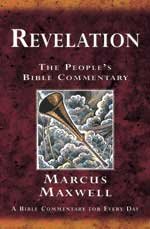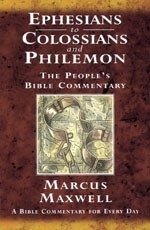There's a continuing rumbling about changes at Wycliffe Hall, the Oxford theological college whose new principle, Dr. Richard Turnbull, is accused of making it more conservative and of getting rid of staff who oppose him.
A letter from the previous three principals of Wycliffe to the Bishop of Liverpool, Wycliffe's chair of governors (or whatever the body is precisely called) recently expressed similar concerns. On the other hand, a friend who is close to events there tells me that it's all rather over-blown, and there's not too much to worry about. I hope so, but....
A video of Dr. Turnbull addressing a Reform meeting last year is rather disturbing. Not necessarily directly because of the Wycliffe question, but simply because of the attitudes he seems to espouse. (Reform, by the way, is a conservative evangelical Anglican group characterised by opposition to women's ministry and a deep homophobia. A similar group is called Anglican Mainstream. Somewhere there is an agency which comes up with these odd names. (It is also responsible for those countries called The People's Democratic Republic of....)
Dr. T says it's very important to be sure what an evangelical is. (Why? Where is the term in the Bible? Did Jesus tell us to be evangelicals?) Apparently, true evos believe in the authority of scripture (OK), a personal relationship with God (OK), the need for evangelism (OK) and substitutionary atonement (damn, I nearly made it!)
He says that being a theological college principal is a "strategic" move to counter the "capture" of colleges by liberals, and that the spearhead of liberalism is liberal evangelicalism (perhaps evos who only score 3 out of 4 on the identity scale?) and they need to be rooted out of the theological colleges they are in charge of (or perhaps have "captured"). Hence he speaks of "two plus four" evangelical theological colleges: Oak Hill in London and his own Wycliffe are the two (who presumably score 4 out of 4) and the others are presumably the liberal evangelicals at Trinity Bristol, St. John's Nottingham, Ridley Hall Cambridge and Cranmer Hall in Durham.
This is fighting talk. It's military language. Which is bad enough: he evidently sees an awful lot of his fellow Christians (some separated by only one point of disagreement, perhaps) as enemies. But perhaps it's even worse. My present colleague points out that militaristic language in conservative evangelicalism is usually about "spiritual warfare": opposing the forces of darkness. Perhaps we liberal evangelicals (I only score 3 out of 4, remember) are not just enemies, but also demonic ones. No wonder he thinks that 95% of the British population is facing hell, if half or more Christians are satanic.
There's more I could rant about, but I find all this much too depressing. Wouldn't it be grand if instead of talk of (possibly demonic) enemies we had a call to shared prayer, worship and outreach? Does it really matter what "mechanism" I believe lies behind the events of Good Friday as long as I truly believe it was Good?
However, let's finish on a positive note. I agree with him that residential theological colleges can provide better theological training than regional part-time courses (and I'm a tutor on one). But that sadly bids fair to be outweighed by the threat of their becoming ever more sectarian training grounds.
Thursday, 21 June 2007
Subscribe to:
Post Comments (Atom)


No comments:
Post a Comment